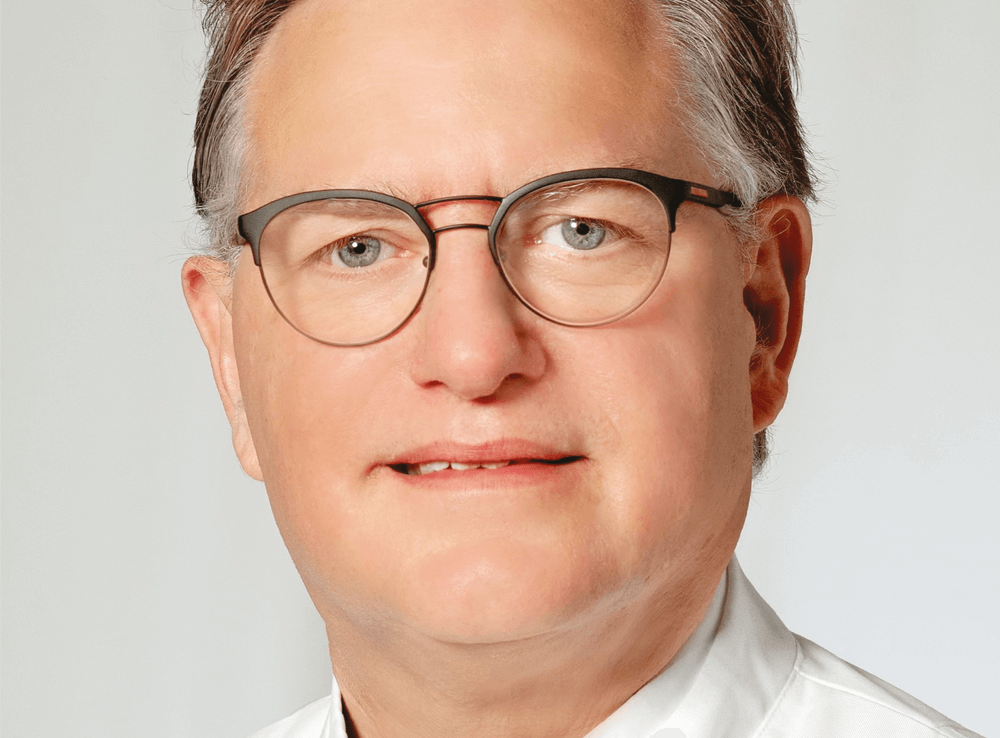
How did you become an ophthalmologist?
When I was 12 or 13 years old, I came across a book by Albert Schweitzer, a famous German physician, theologian, writer and humanitarian, who built a hospital in Lambaréné, Gabon. Reading about his ethical approach, and about him overcoming difficulties and rebuilding the hospital three times, I was transfixed. So, at the age of 13, I decided I wanted to do what Schweitzer did, and that thought stayed with me. A few years later, I got into medical school. At the time, I was mostly interested in biochemistry and genetics, but before I even got my medical degree, I managed to get to the hospital at Lambaréné! I worked there for a couple of months, practicing pediatrics and tropical medicine, but the person who helped me get there was an ophthalmologist. Wilfried Hunold, professor at the University of Aachen, approached me early on in my medical studies to ask if I was interested in writing a doctoral thesis in ophthalmology. I was really into research, and ophthalmology was the perfect field to pursue those interests. Thanks to Hunold, I started participating in research groups, and I was giving lectures at ARVO in my second and third year of medical school. My thesis was in pediatric ophthalmology. One day, Hunold told me he had a friend who worked in Gabon, and asked whether I’d ever heard about Albert Schweitzer and his hospital! I exclaimed that he needed to call his friend there and then, and ask him if I could join his team.
Tell me more about Hunold and your other mentors…
Thanks to Hunold, I got to do so much interesting work early on in my career. First, I worked with autorefractors for pediatric patients when they were first invented in the 1980s. I also did pharmacological and pharmacokinetic studies on atropine, working with the University of Turku in Finland as they performed blood analysis I needed for my research. When I finished medical school, it was very clear that I would stay with ophthalmology, and my first position was in Hunold’s hospital. He introduced me to his good friend, David J. Apple, Professor of Ophthalmology and Pathology, Chairman of the Storm Eye Institute at the Medical University of South Carolina, in Charleston, USA, where I then spent two years doing my postdoc. After that, I was in a privileged position, where many German universities were interested in hiring me. I chose Heidelberg and built up my expertise on the clinical side, and then, when Apple died, I moved his laboratory here. Over the years, I went from a resident, faculty member, professor, culminating in the chairman position.
Do you ever wonder where you would be if you made different decisions?
There seem to have been a few very fortunate coincidences in the course of my career, but perhaps I was subconsciously working to make them happen? One thing is certain – when those opportunities arose, I didn’t even have to think about them, I was able to say “yes” immediately, grab them, and be on my way. I could’ve made different decisions – such as staying in the US after the two years I spent in Charleston – but my gut feeling was to come back to Germany, and it has worked out well for me. My wife actually says that whatever I did, I would’ve ended up in the same position!
When I talk about how my career unfolded, it seems like one opportunity led to another, but behind all that, there was a huge amount of hard work.
Could I have succeeded in a different profession? I guess so – I have had an interest in business, seeing how companies work. I have been sitting on boards of directors of a few different companies, which has been really interesting.
How did you become interested in optics?
The late 1980s and early 1990s was a time when so many new optical applications came about. I took part in implanting the very first multifocal lenses at the time, I did a lot of research around new IOLs and their applications – it was a very new and exciting area. My team was the first in Germany to use AcrySof materials in a multicenter trial, and I looked at glistenings. So then, at the Apple lab, it was quite natural for me to focus completely on IOLs. We did a lot of FDA studies on new materials, and a lot of that work was unpublished and confidential, but I learned a lot about IOL pathologies, and I was around innovative ideas in optics. I am quite passionate about finding the perfect material, design and type of optics for an IOL, so that side effects are minimized. It is this pursuit of perfection that has kept me interested in the field!
What motivates you these days?
I find my motivation in family, my academic environment, and seeing how my mentoring and support helps other people develop their potential. I have also found motivation in industry partners understanding how vital it is that they keep finding new ways to develop their optics to reduce side effects such as photic phenomena, and optimize materials. It’s heartening to be working in a field where everyone really tries to improve things, and being part of this process.
